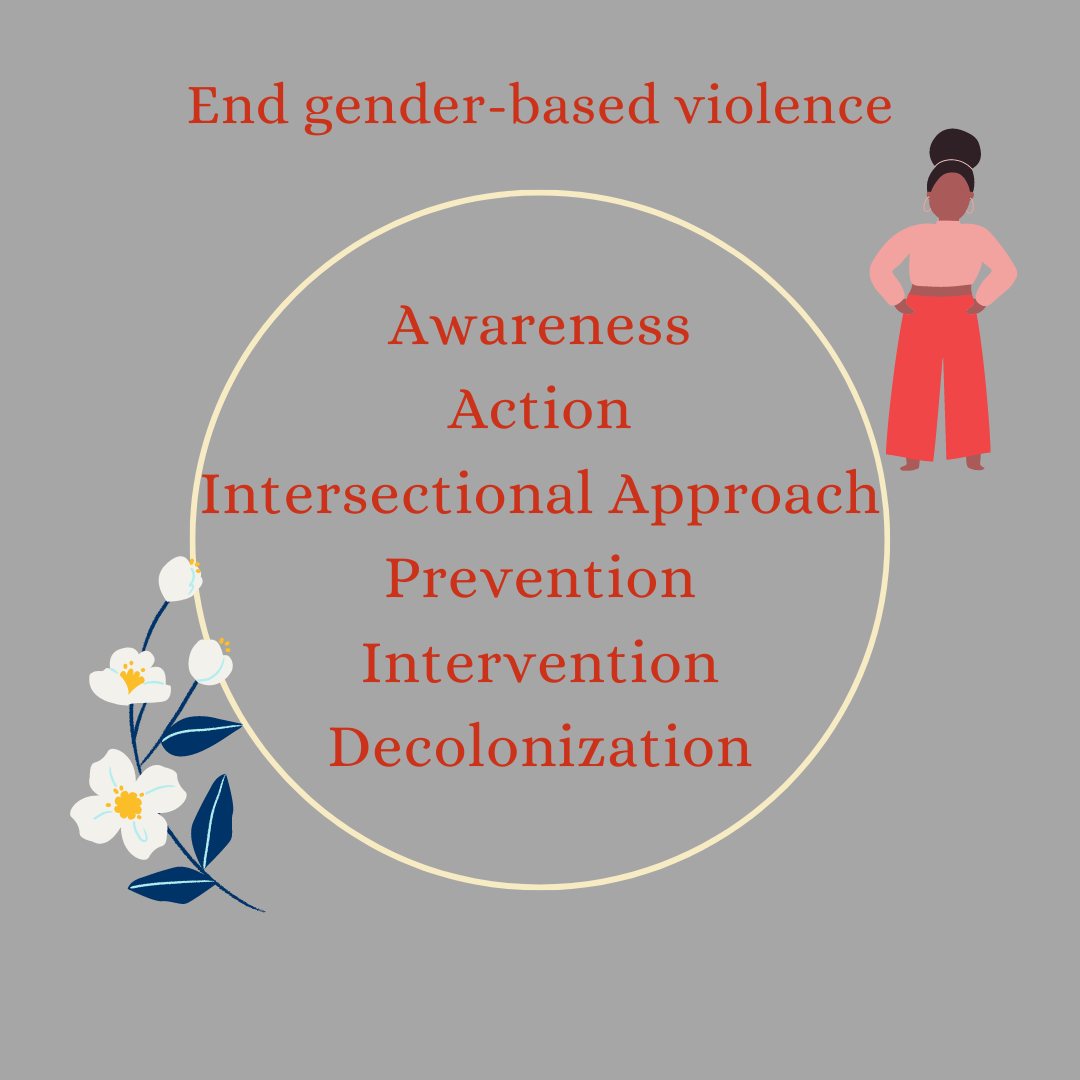We’ve created 31 Actions for Gender Justice to raise awareness, spark conversations and take action that transforms gender and power relations, and the structures, norms and values that underpin them. Every day for the month of March we will highlight an action that advances gender equity and justice for International Women’s Day (IWD).
Increase awareness about the pandemic within the COVID-19 pandemic
31 Actions for Gender Justice: Day 23
Many women are at higher risk of sexual violence during the pandemic due to increased isolation and social marginalization.
- Pandemic stressors such as unemployment, financial stress, and isolation can increase abusive partners’ attempts to control others through sexual violence.
- Social distance and stay-at-home measures increases opportunities for online grooming and cybersexual violence.
- Sexual exploitation of an individual’s financial strain may occur, such as demands for sex in lieu of rent or in exchange for food, other resources, or a safe place to stay.
- Restrictions on visits and reduced number of staff in prisons or residential care settings like long-term care homes can put people at risk of sexual violence in this settings.
- Alcohol or drugs – which some people use to cope with the impacts of the pandemic- can be exploited by others to facilitate sexual assault.
- Social and physical distance has left many women and people of marginalized genders staying home in close proximity to their abusive partners.
Because of COVID-19 and experiences of violence, survivors of sexual violence face different barriers based on their individual circumstances and intersecting oppressions like racism, colonialism and classism: a pandemic within the COVID-19 pandemic.
- Reluctance to go to the hospital or access to other services due to fear of being asked about domestic violence experiences.
- Difficulty finding private and safe times to reach out to support networks or seek help.
- Separation of informal support like school, co-workers, or religious community.
Gender-based violence has increased during the pandemic and reporting and seeking help can be more challenging for survivors.
We’ve seen domestic violence spike since the beginning of the pandemic, but we are now also seeing an increase in the number of women killed in domestic violence cases across Canada –most of them killed by an intimate partner or a relative living in the same household. COVID-19 has exacerbated domestic violence and left survivors with fewer options to seek help.
We need intersectional, systemic approaches and actions to support marginalized groups, including but not limited to those with disabilities, Black, Indigenous and racialized women; refugees, trans, LGBTQ2 people, and sex workers. Gender justice won’t be possible without making sure that marginalized groups have equal opportunities.
BWSS Crisis Line operates 24/7. If you or a loved one needs help, contact us:
604-687-1867 or toll free at 1-855-687-1868





